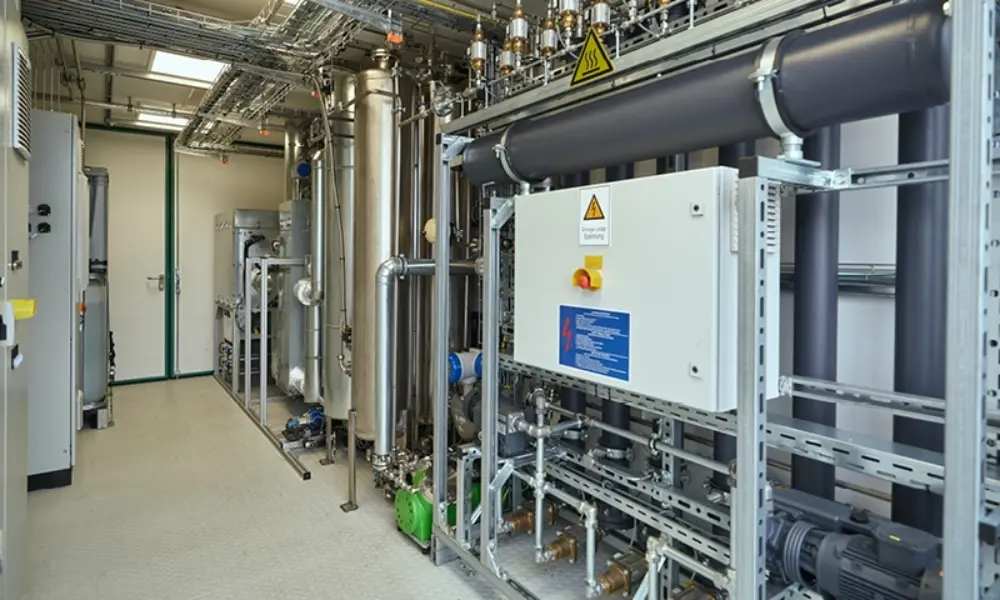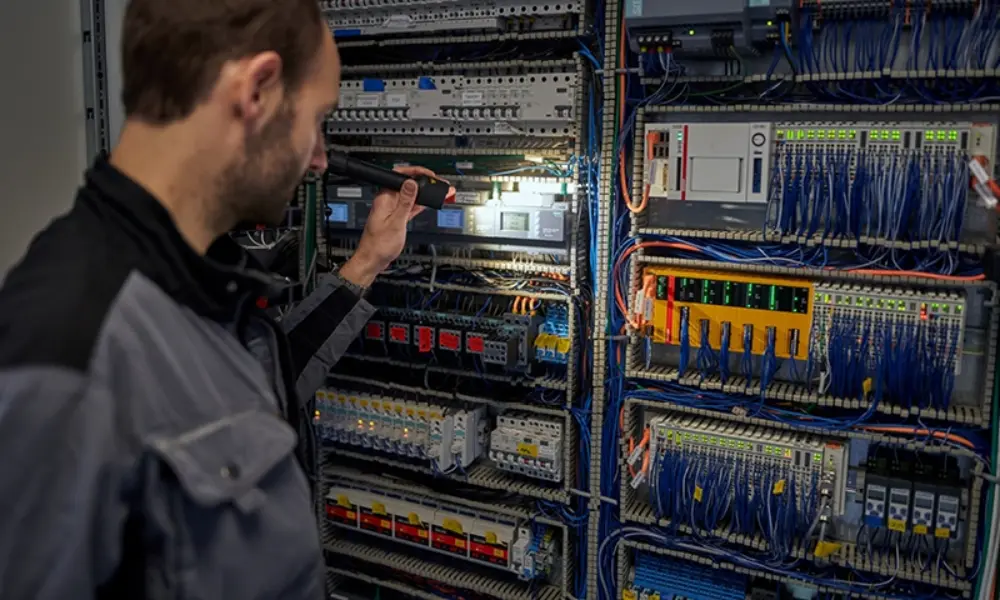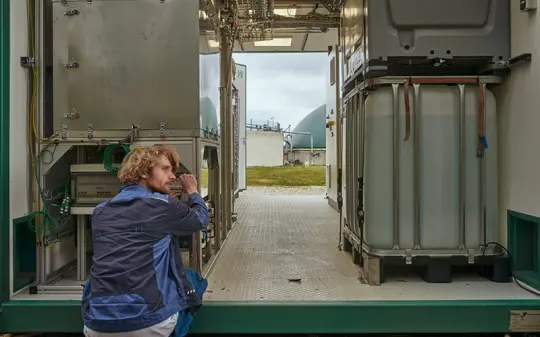The Bavarian start-up company Reverion equips their fuel cell installations with HELUKABEL cables
Biogas plays an important role in the world of renewable energies. However, there is still significant potential that can be exploited in its production and use. The goal of the start-up company Reverion is to better exploit this resource through innovative, container-based power plants. These Bavarian visionaries rely on high-quality HELUKABEL cables to connect the electronic components of their fuel cell systems. The production and use of biogas play an important role in the global transition to sustainable energy sources. In Germany alone, approximately 10,000 biogas production facilities are currently in operation, producing biogas by fermenting livestock manure and other forms of biomass. The biogas produced in this way is mainly converted into electricity, usually in cogeneration plants with combustion engines. More than 30 terawatt hours of electricity are produced from biogas per year in Germany, which amounts to approximately 18% of the total domestically produced energy from renewable sources. The advantage of biogas over other renewable energy sources is that its use is not affected by the weather and sunlight. This means it remains useful even when wind and solar power plants lag behind in energy production. However, biogas technology also has disadvantages. Most facilities are only about 40% efficient, resulting in large energy losses during production. The amount of CO2 released when burning biogases is relatively low compared to electricity produced by burning coal or natural gas, but still significantly higher than wind, hydroelectric and solar energy.Improved efficiency and a reduced environmental footprint

The system can be switched to an electrolysis mode, which allows electrical energy to be used to produce hydrogen and methane.
“Biogas has a lot of potential; it just needs to be better utilized,” says Lukas Berneiser, head of electronics at Reverion GmbH. With roots in the Technical University of Munich, the Bavarian start-up company has set the goal of improving the efficiency of biogas production. Reverion has developed and patented a revolutionary, container-based power plant system capable of electrochemically converting biogas and hydrogen into electricity with an efficiency of 80%. The carbon dioxide produced during this process is separated and then stored, making cost-efficient negative CO2 emissions possible for the first time. “Our systems are particularly attractive for agricultural and industrial companies that have their own biogas production facilities,” Berneiser explains. “This is because with our technology they can produce twice as much energy from the same amount of biogas.” Their system has another important advantage: it is reversible. “This means that the system can be switched to an electrolysis mode in less than a minute, allowing excess energy from solar and wind power plants to be used to produce hydrogen and methane,” says Berneiser. This allows energy to be temporarily stored as gas and then converted into electricity or thermal energy when needed.Energy storage and customer demand

Reverion's electrical equipment relies, among other things, on the expertise of HELUKABEL.
Central to the Reverion system is a framework of solid oxide fuel cells called the skid. To produce electricity, purified biogas is injected into the cells, where it is partially oxidized by ambient air. This produces electrical energy, which is captured by the electricity grid. The pure CO2 byproduct is separated and stored and can then be used in a number of technical or industrial applications. The electrolysis mode essentially goes through this process in reverse. The fuel cells use electrical energy to produce pure hydrogen, which can be stored or further converted into methane using CO2. Methane has similar properties and applications as natural gas. Berneiser is convinced that “this system is the solution to several challenges, especially those of efficiently storing and using renewable energy.” Reverion's electrical equipment relies on the expertise of HELUKABEL, among others, which supplies the cables that connect the fuel cells , inverters, sensors and actuators, as well as the wiring for the internal control panels. Data cables are also used for communication between the skids via an Ethercat network, as well as hybrid lines that power and monitor various engines. “The built-in cables must withstand voltages of up to 1,500 volts and temperatures of up to 300 degrees Celsius,” Berneiser explains. “It is equally important to us that all our required components are of the highest quality and reliably available.”
HELUKABEL has contributed substantially to the incredible speed at which we are approaching serial production of our fuel cell power plants. Lukas Berneiser, Head of Electronics, Reverion GmbH
Expert advice and an extensive portfolio
After many recommendations, the Reverion team came into contact with HELUKABEL and the regional sales manager Philipp Walter. “Our conversations were pleasant, and Mr. Walter was friendly and competent,” Berneiser recalls. The two worked together to find the ideal cable for every application. “For example, we supply Reverion with solar panel cables from the SOLARFLEX series, weatherproof H07RN-F cables, hybrid cables from the TOPSERV series and single-wire H07V-K cables. Accessories such as cable glands from the HELUTOP product line complete the shipment,” Walter explains. In areas with high temperatures, such as near the fuel cells, Reverion uses special heat-resistant HELUTHERM 400 nickel cables, which can withstand temperatures of up to 400 degrees Celsius. With a range of more than 33,000 items, HELUKABEL can find a suitable solution for any application, no matter how challenging, and it was this ingenuity that convinced the leadership of the Bavarian start-up company. The first Reverion installation with an electrical capacity of 100 kilowatts has been undergoing a pilot run since October 2023, and serial production is planned for 2024 and 2025. This will allow the containers to be distributed throughout Germany, as well as to neighboring countries. “If the cables in our pre-series products prove themselves in practice, we plan to continue our trust in HELUKABEL for our serial production,” explains Berneiser. “HELUKABEL has proven itself as a reliable partner and has provided us with the exact cables needed to meet our specific requirements. This has significantly increased the speed at which our innovative fuel cell plants approach serial production. We look forward to continuing to work together in the future!” Reverion installations are especially attractive for agricultural and industrial companies with their own biogas production.
You can also find this and many other exciting articles in the current issue 15 of our customer magazine POWER. Read this now!
Reverion installations are especially attractive for agricultural and industrial companies with their own biogas production.
You can also find this and many other exciting articles in the current issue 15 of our customer magazine POWER. Read this now!